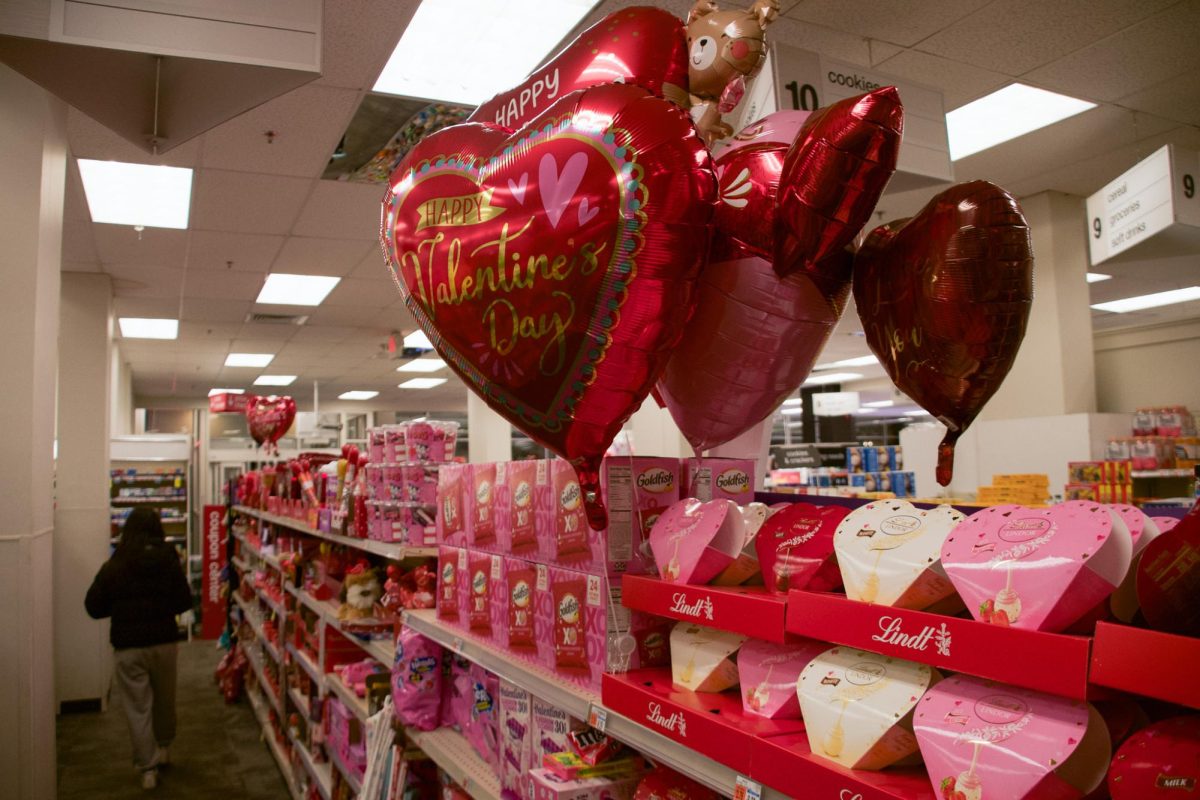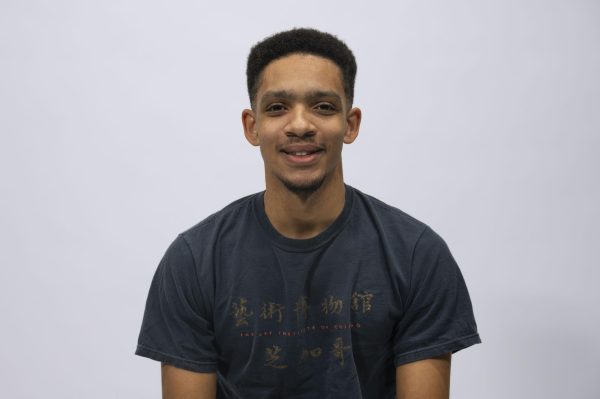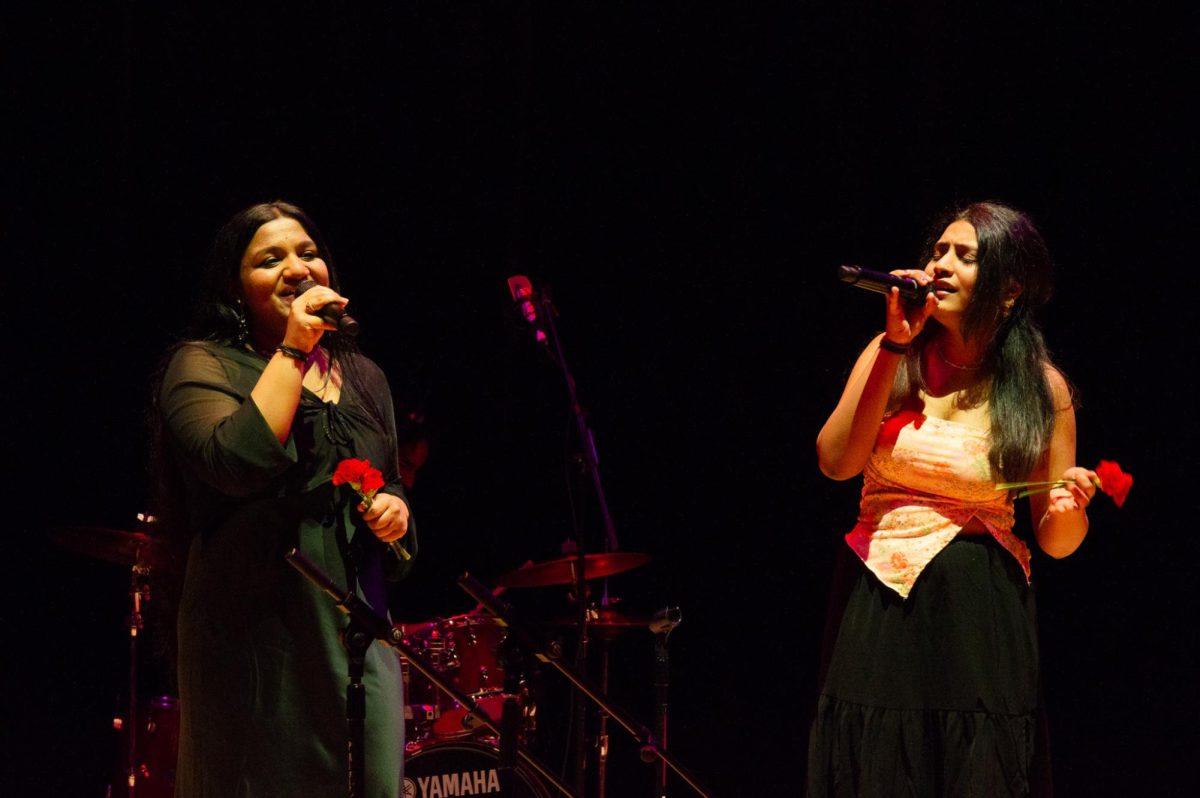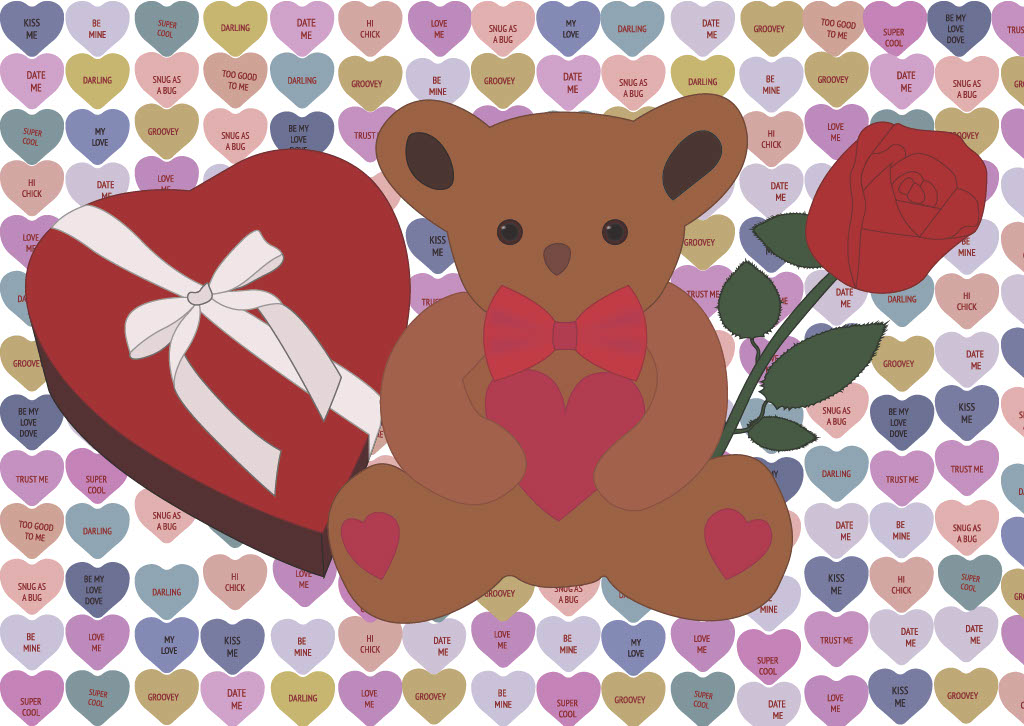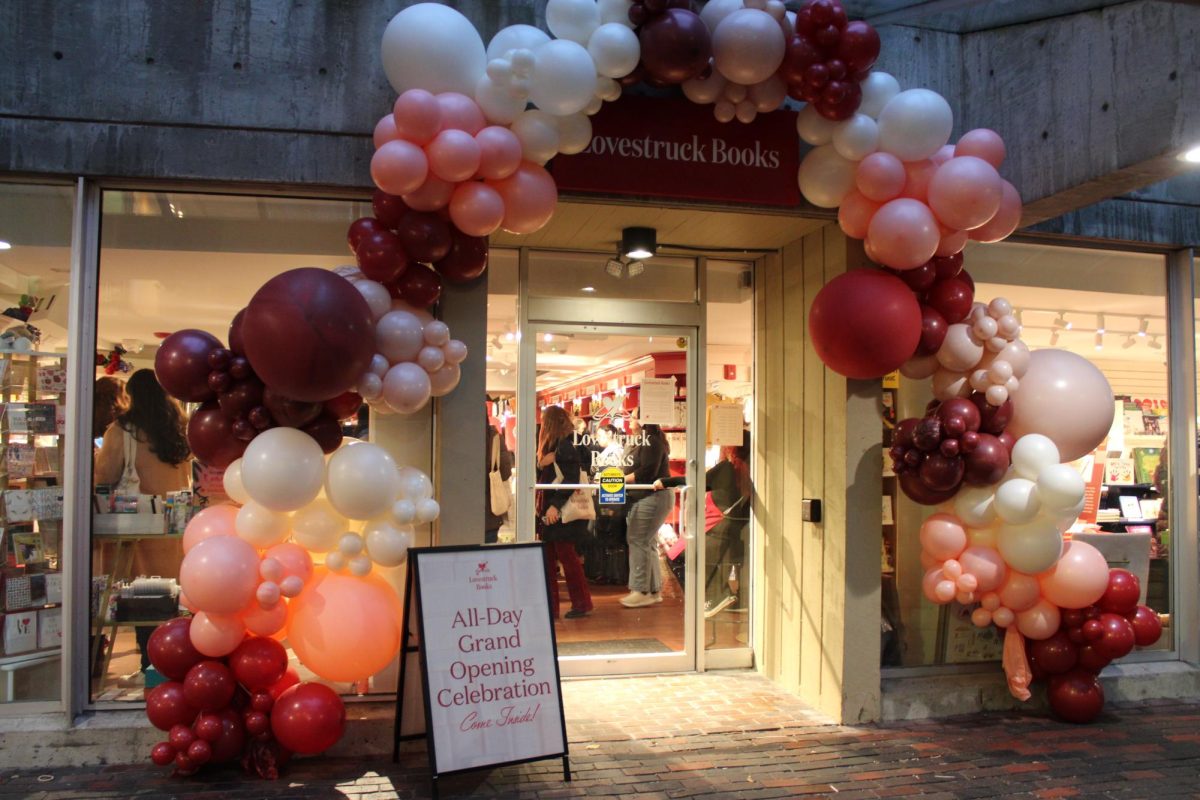Ah, the long-awaited Feb. 14 — Cupid is coming to town. Either you’re single and dreading Valentine’s Day, or you and your significant other have a Contessa reservation locked down and are wondering why everyone is being so darn negative about the whole dating thing.
The happy couples have a point. Over the years, Generation Z, or Gen Z, singles have come to view the modern dating scene through an increasingly pessimistic lens — and there’s no lack of TikTok videos, articles and flurries of young people across college campuses to prove it. For every pleasant experience out there, it’s the dating “nightmares” that have captured our attention.
The stats also look pretty murky: 79% of Gen Z feels burnt out by dating apps. Nearly half of young men have opted out of dating. A 2024 Hinge study found that, although 90% of Gen Z report wanting to find love, crippling fears of rejection stand in the way.
No doubt about it, this generation’s dating scene has gotten messy. But do our extreme levels of cynicism actually fix anything?
Before the complaints from swaths of Valentine’s Day haters start to roll in (no judgment, I’ve been guilty of it too), it’s time Gen Z takes some personal accountability for our role in shaping and perpetuating modern dating culture.
We are living the ultimate dating irony: By incessantly complaining about problems in the dating world, we feed into them, transforming the inherently fun process of getting to know someone into an unenjoyable experience for everyone involved.
For evidence of Gen Z’s dating cynicism, look no further than our daily vernacular on campus. If you eavesdrop on just one “study” session at Snell Library, it will quickly become clear that our generation is consumed with using negative, hyper-specific terms to characterize our relationship experiences. Today, people are immediately written off as “red flags.” They “love bomb” by disingenuously showering you in affection far too soon or “ghost” conversations, unexpectedly halting communication without saying why.
And how can we forget about the newest dating craze: the “situationship.” This fluctuating or undefined relationship status has become not only Gen Z’s new norm, but a term used to excuse any type of manipulative behavior under the sun.
By rattling these words off amongst our friends, we normalize the very actions we claim to denounce. Rather than surprising us, unkind dating conduct has become an expected part of our every day. She flirted with your best friend right in front of you? He stood you up after weeks of planning a trip? Well, how could you expect anything else — it’s just a “situationship” after all.
In a video with over 82,000 likes on Instagram, @amazingishgrace calls out how much we’ve come to normalize this poor behavior in dating, creating new terminology “to justify or make sense of” the ill-treatment that is “ultimately very dehumanizing.”
Compounded with overarching generalizations like “men are trash” or “women aren’t loyal,” Gen Z has brought an antagonistic air to dating that never needed to be there in the first place. With this negative outlook, you are always waiting for the other shoe to drop, viewing every new romantic prospect as someone who could possibly hurt you. Now, your guard is up. The second a person doesn’t communicate exactly as you’d hoped, they become yet another one of the cautionary tales in an ever-growing collection of dating horror stories. You act accordingly, using your alarmist fears to justify treating them without the respect you know is warranted.
Now, you’re part of the problem too.
This has become Gen Z’s collective dating story. Too often assuming the worst in others, we’ve developed an excessive fear of being mistreated — a fear which has ironically caused us to mistreat people. Gen Z now lives and breathes by a self-protective motto: “Hurt them before they can hurt me.” Ignore this person before they can ghost me. Make fun of an ex’s appearance because they must already be mocking mine.
Or, on the flip side, we tell ourselves: Don’t approach your crush because they’ll rudely reject you. Hold off on sharing anything honest or vulnerable to avoid being laughed at.
When we see the worst in people, we become the worst of people — infusing the Gen Z dating scene with an endless loop of insecurity, risk aversion and downright rudeness to each other.
Of course, some negativity has its place in dating. Rejection and relationships are painful, and I admit that there is plenty of catharsis in ranting with friends or blasting Sabrina Carpenter’s “Slim Pickins” and Drake’s “You Broke My Heart” on repeat. There’s also some sense of safety in knowing all the ways that a person can do you wrong.
But negativity in dating is no different than any other form of negativity in life: Bad experiences are going to happen, but allowing them to consume our worldview only does more harm than good.
Let’s start acting under the assumption that most people are kind. Unlike what some on the internet may have you believe, no one is running around intending to hurt or use you — and in the off chance they are, it doesn’t mean that you must sacrifice your own morals in order to hurt them back.
Rather than dwelling on that one time someone stood you up, spend just as much time reminding yourself of the many people who have treated you with kindness without expecting anything in return.
Adopting a positive outlook may just mark the best shift in Gen Z’s dating life. If we start to believe that there are plenty of amazing people out there to enrich our lives, we won’t ever feel we have to settle for anything less than that.
And regardless of what is implied nowadays, we actually do owe each other something in dating — not flowers and chocolates nor intimacy or quick text responses, but a baseline sense of respect and understanding.
Samantha Denecour is a fourth-year English and political science combined major and columnist for The News. She can be reached at denecour.s@northeastern.edu.



